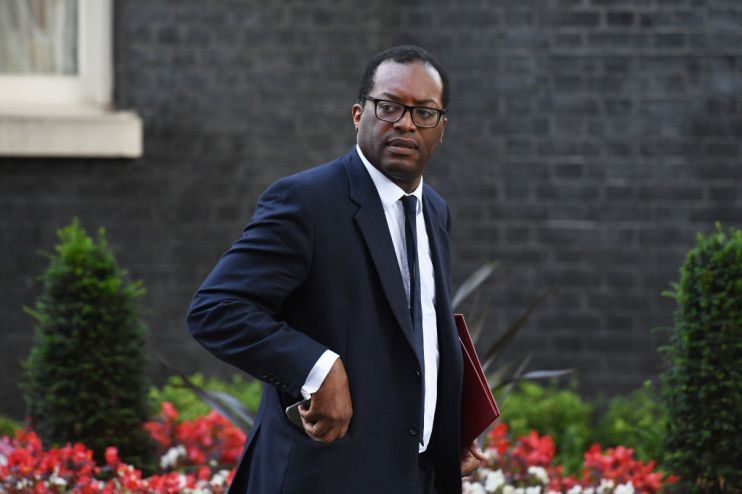Kwarteng plays down prospect of blackouts this winter amid supply crunch fears

Business Secretary Kwasi Kwarteng has played down the prospect of a winter blackout, dismissing the scenario as an “extreme possibility.”
The cabinet minister was quizzed by the BEIS Committee today in Westminister, and was pressed on the possibility of a supply crunch this year.
This follows modelling seen by ministers last month, forecasting a “reasonable” worst case scenario where the UK experiences power rationing across six million homes if Russia cuts off gas into Europe and the UK struggles to secure supplies.
He said: “We are doing a lot in terms of winter resilience. The report about the blackouts was just stating an extreme possibility, and of course any responsible government has to plan for extreme possibilities. But I am not expecting anything in that line, or to that extent.”
Tensions over potential supply shortages have escalated in recent weeks, with the West aiming to impose more sanctions on Russian oil and gas, with the European Union (EU) and G7 weighing up price caps and demand curbs.
Earlier this month, Germany triggered the ‘alarm phase’ of its emergency plans – which could eventually lead to its Government rationing energy, while France and Italy are also assessing contingency plans.
This comes after Russia cut off supplies into multiple EU member states after their energy firms refused to pay in roubles, while there have been reports of 60 per cent drops in gas flows from the Russia-Germany Nord Stream 1 pipeline in recent weeks.
While the UK only relies on Russia for four per cent of its gas supplies, it does purchase gas from Europe, and would also find more competition for resources from its usual vendors if Europe has to scramble for gas.
The Government has been harnessing fossil fuels in recent weeks to ensure sufficient supplies are available this winter in case of energy shocks.
This includes extending the life of a coal-fired power plant into next year, considering the opening of a coal plant in Cumbria, and holding a geological survey on fracking.
Alongside supply challenges, the Government is also working on methods for reforming the energy market over the long term.
Kwarteng revealed the Government was working “at pace” on plans to reduce gas’ dominant role in determining power prices.
This could include potentially separating renewables and fossil fuel into separate pricing arrangements.
He said: “We are working on this right now. Intellectually it’s a very simple problem. All the electricity we pay for, is priced directly related to the marginal cost of gas production. You can see that in a system 40 years ago which was largely coal and gas, that made sense. As we progress into the 2020s we have a system uniquely in Britain where we have a huge diversity in sources of power.”
North Sea oil and gas exploration is included in the Government’s recently unveiled supply security, however the cornerstone of the agenda is the ramp up in renewables, with Downing Street targeting 50 GW of offshore wind and 70 GW of solar power over the coming 10-15 years.